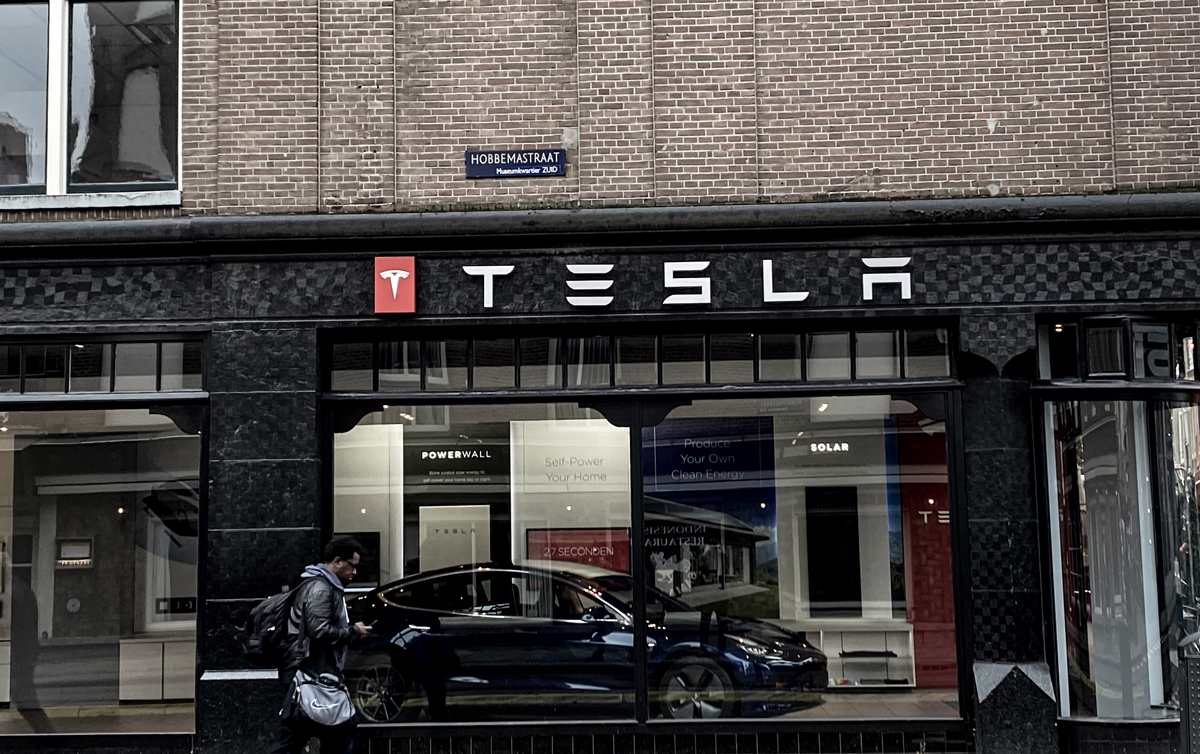Your Next New York Taxi ride? It will likely Soon be a Tesla…
The Model 3 has just been approved to join New York City’s taxi fleet.
Among the 40 vehicles approved, Model 3 is the only fully-electric car on the list. Usually, cars only get this kind of certification whenever an automotive manufacturer or individual requests it, but that’s not without some specific standards.
The qualifications for a vehicle to be certified as a New York taxi cab are simple: it must meet a certain minimum of interior space, have air conditioning installed for, have space for the clear partition between the driver and passengers, and also have its seats covered with an easy-to-clean material. Once approved, these cars can have their official taxi cab equipment installed, which requires a standardized paint job, exterior taxi lights, taxi signage, taxi meter, and interior partition.
Previously, electric cars were seldom used as taxi cabs because of their limited range and power. This was found in an experimental program with Nissan Leaf electric cars that ended in 2015. The problem that the Taxi & Limousine Commission noticed was that drivers were burdened by the significant limits of electric-powered vehicles compared to gas-powered vehicles. It was an especially big burden during hot weather that required extensive use of the air conditioner, which became another battery-draining source that would shorten the vehicle’s already short range even more.
However, Elon Musk’s Tesla vehicles could represent a solution for that problem since the Model 3, for example, has a range of at least 220 miles, which is significantly longer when compared to the Nissan Leaf‘s estimated meager range of 84 miles. The future Long Range Model Y is planned to have an even longer range at 300 miles on a full charge, which matches the average range of a traditional gas-powered vehicle.
Police Department Investigating Tesla Fleet Purchase: Acceleration is Key
As an Allegheny County Sheriff experiments with using Tesla for their police department in Pittsburgh, Pennsylvania, Tesla proves that it could compete in both power and performance against traditionally gas-powered vehicles.
The Allegheny police have reported to particularly enjoy the many technologically advanced features that Tesla has to offer, like its computer monitor, smooth handling, quiet engine, quick acceleration and automatic safety features.
Indeed, many of these Tesla features are particularly handy when it comes to the specific job requirements for police cars to perform at a standard well above the average vehicle. Their only caveat is its average range. Although its range has yet to rival gas-powered vehicles, Tesla has gotten close to the average range of traditional cars that range from 300 to 400 miles on a full tank of gas. This puts Tesla’s foot in the door of the car competition, and who knows how much Tesla’s range will increase in the future as their technology continues to advance and improve.
However, a long range isn’t the only requirement for a police car. It also needs to be incredibly fast, and this is where Tesla dominates. An average gas-powered vehicle could accelerate from 0 to 60 mph in 8 seconds, while Tesla’s electric vehicles (EVs) could reach that in as little as 5 to 3 seconds. At this rate, Tesla EVs are definitely capable of chasing and catching runaway vehicles before needing to recharge.
Additionally, Tesla EVs are a lot safer than traditional vehicles. Many of the Allegheny police deputies have noted how the Tesla would immediately start to break on its own after they put their foot off the gas pedal and before they even hit the breaks. Additionally, Tesla EVs are a lot more cost effective by saving money without the use of gasoline in the long run. The Allegheny sheriff deputy also calculated that Tesla EVs would save them about $17,000 over a period of five years compared to their gas-powered vehicles.
Tesla Scores #1 among EVs for a Low-Carbon Future
According to Moody’s Carbon Transition Assessments (CTAs), which measures an automotive company’s ability to transition into a more sustainable “low carbon future,” Tesla was the only car manufacturer to receive the highest possible score.
The multi-point scale, with the highest rating being CT-1 and the lowest being CT-9, determines how ready the company is to transition to producing cleaner vehicles with zero emissions. Although BMW, Honda, Toyota, Geely, and Beijing Automotive group also received high CTA scores among the 20 surveyed, they are significantly lower than Tesla’s top spot at CT-1.
Notably, electric car sales have increased three-fold, while diesel vehicle sales have lost appeal and plummeted at rapid rates. With this in mind, the future of electric vehicles looks brighter as their demand and production continues to grow significantly, and every other automotive company needs to catch up.
Moody’s predicts that we will need more intensive carbon emissions testing on global car manufacturers in the near future. This comes at an important time when countries have set out crucial deadlines for petroleum phase-out goals during the expedited transition to clean, sustainable energy in light of the present climate crisis.
Moody’s 20-car-manufacturer assessment also puts an end to the circular argument that many critics of the electric vehicle movement have through the faulty narrative that EV production does more harm to the environment than good.
As Tesla’s production and technology becomes more advanced and sustainable, they are knocking over the barriers that previously held electric vehicles back from popular use. Tesla is well on their way to rivaling the range, speed, power, and performance of gas-powered vehicles. The future of clean transportation no longer has to settle for a lower quality of life and has the potential to create something even better than what we have now.
Find books on Big Tech, Sustainable Energy, Economics and many other topics at our sister site: Cherrybooks on Bookshop.org
Enjoy Lynxotic at Apple News on your iPhone, iPad or Mac and subscribe to our newsletter.
Lynxotic may receive a small commission based on any purchases made by following links from this page.


